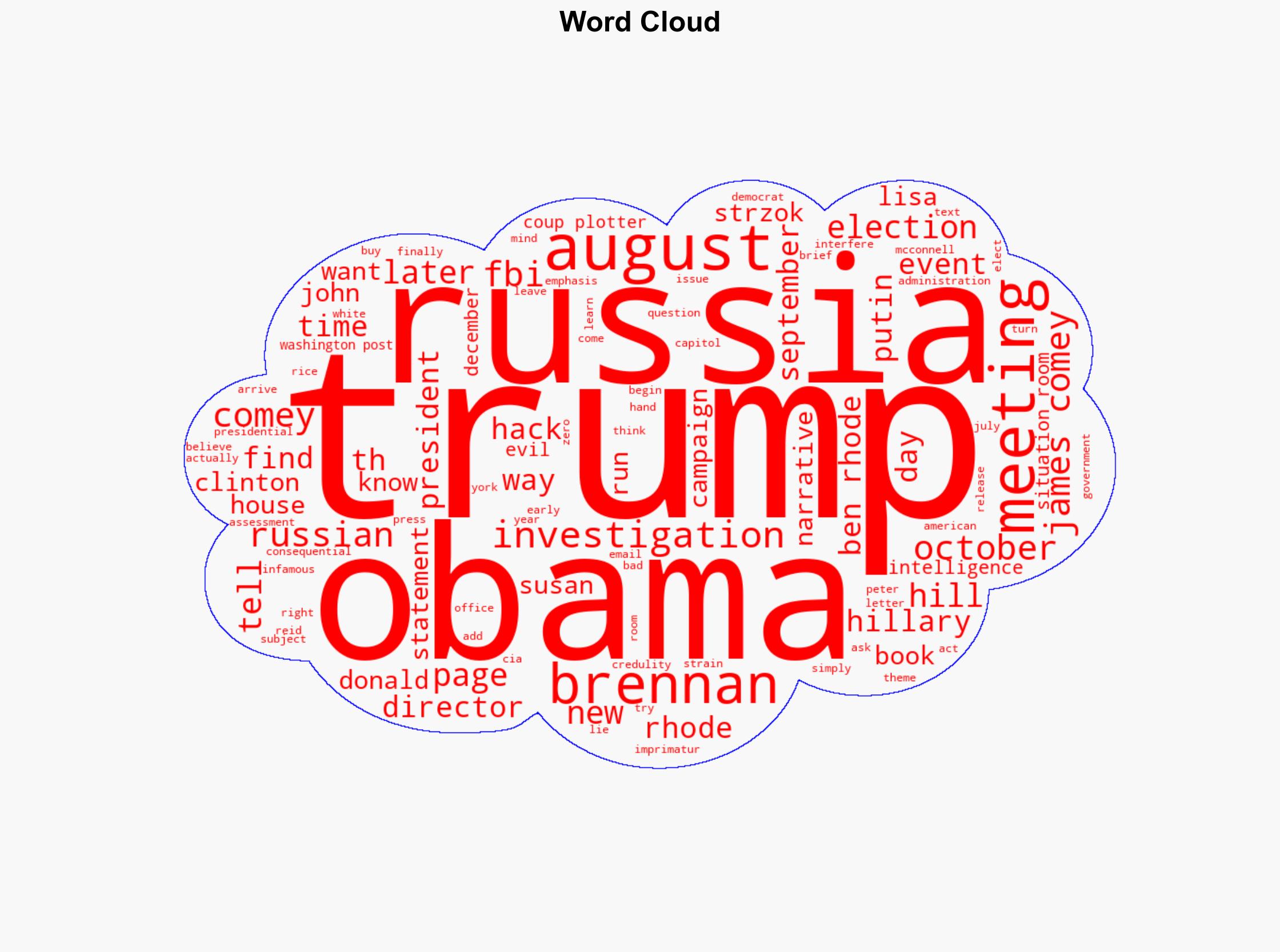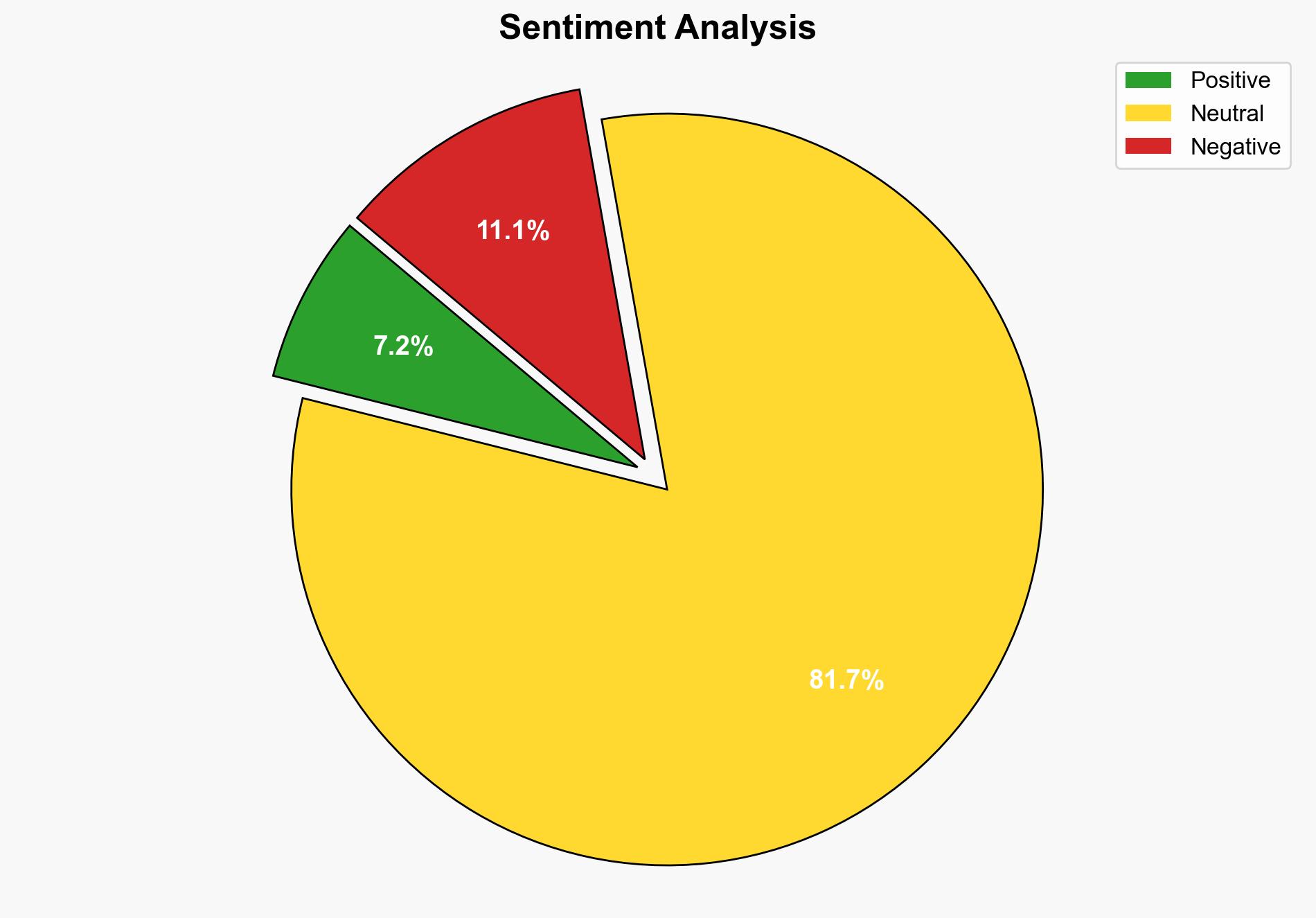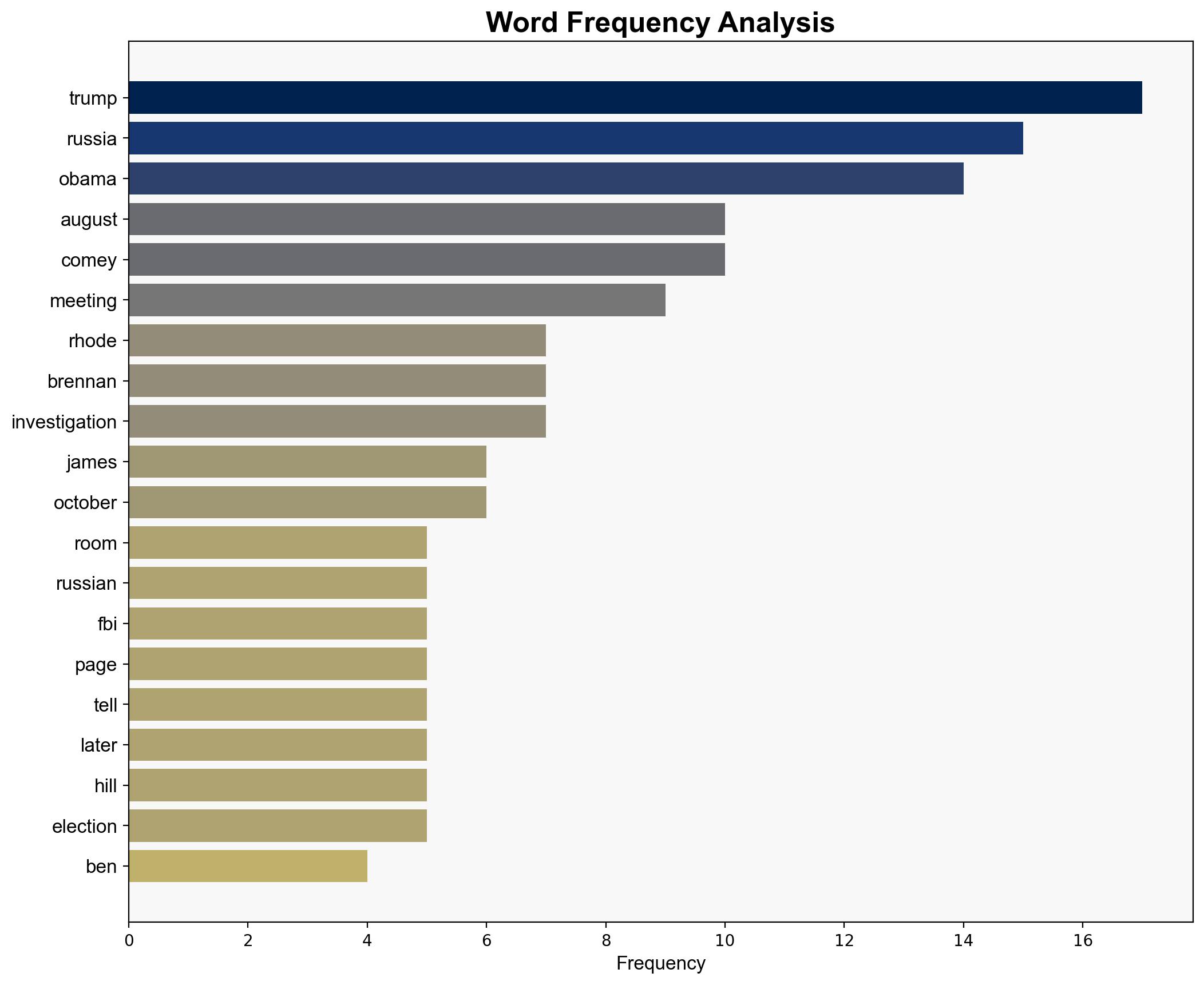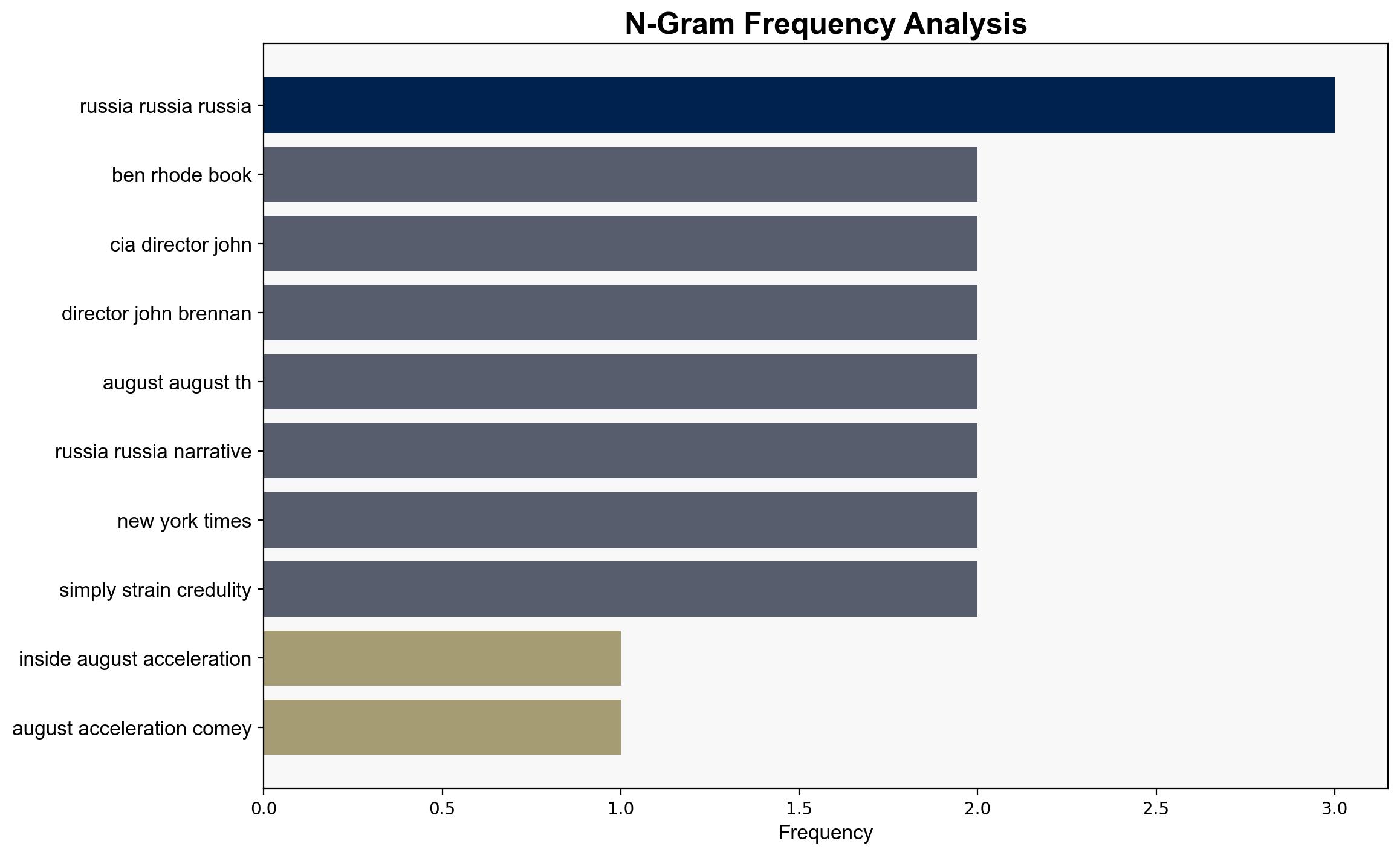Inside the August Acceleration How Comey and Company Ignored the Red Flags – Americanthinker.com
Published on: 2025-08-11
Intelligence Report: Inside the August Acceleration How Comey and Company Ignored the Red Flags – Americanthinker.com
1. BLUF (Bottom Line Up Front)
The analysis suggests a moderate confidence level in the hypothesis that political motivations influenced intelligence assessments related to Russian interference in the 2016 U.S. election. The alternative hypothesis of a genuine intelligence failure due to procedural oversight is less supported. It is recommended to conduct a thorough review of intelligence processes and decision-making frameworks to prevent similar occurrences in the future.
2. Competing Hypotheses
1. **Political Motivation Hypothesis**: Key figures, including James Comey and John Brennan, were driven by political motivations to amplify the narrative of Russian interference to undermine Donald Trump’s campaign. This was allegedly done by creating an “imprimatur” of intelligence consensus.
2. **Intelligence Oversight Hypothesis**: The focus on Russian interference was a result of genuine intelligence concerns, but procedural oversights and miscommunications led to exaggerated narratives and misinterpretations of the data.
3. Key Assumptions and Red Flags
– **Assumptions**: The Political Motivation Hypothesis assumes that personal biases and political affiliations significantly influenced intelligence assessments. The Intelligence Oversight Hypothesis assumes that the intelligence community operated with integrity but was hampered by structural inefficiencies.
– **Red Flags**: The timing of key events and communications, such as Peter Strzok’s text messages and John Brennan’s briefings, suggest potential coordination that aligns with political agendas. The lack of transparency and the selective release of information are indicators of possible deception.
4. Implications and Strategic Risks
– **Geopolitical Risks**: Continued focus on Russian interference could strain U.S.-Russia relations and impact global diplomatic initiatives.
– **Cybersecurity Threats**: Misinterpretations of cyber threats could lead to inadequate responses to genuine cybersecurity risks.
– **Domestic Political Tensions**: Perceptions of intelligence manipulation could exacerbate political polarization and erode public trust in governmental institutions.
5. Recommendations and Outlook
- Conduct an independent audit of the intelligence processes related to the 2016 election to identify procedural failures and biases.
- Enhance transparency in intelligence assessments to rebuild public trust.
- Scenario Projections:
- **Best Case**: Improved intelligence processes lead to more accurate threat assessments and restored public confidence.
- **Worst Case**: Continued political manipulation of intelligence results in further erosion of trust and increased geopolitical tensions.
- **Most Likely**: Incremental improvements in intelligence processes with ongoing political scrutiny and debate.
6. Key Individuals and Entities
James Comey, John Brennan, Peter Strzok, Lisa Page, Hillary Clinton, Donald Trump, Barack Obama, Mitch McConnell, Susan Rice, Harry Reid
7. Thematic Tags
national security threats, cybersecurity, political influence, intelligence integrity





